Is Salesforce a leader in AI? A 2025 breakdown for support teams

Stevia Putri

Katelin Teen
Last edited October 7, 2025
Expert Verified
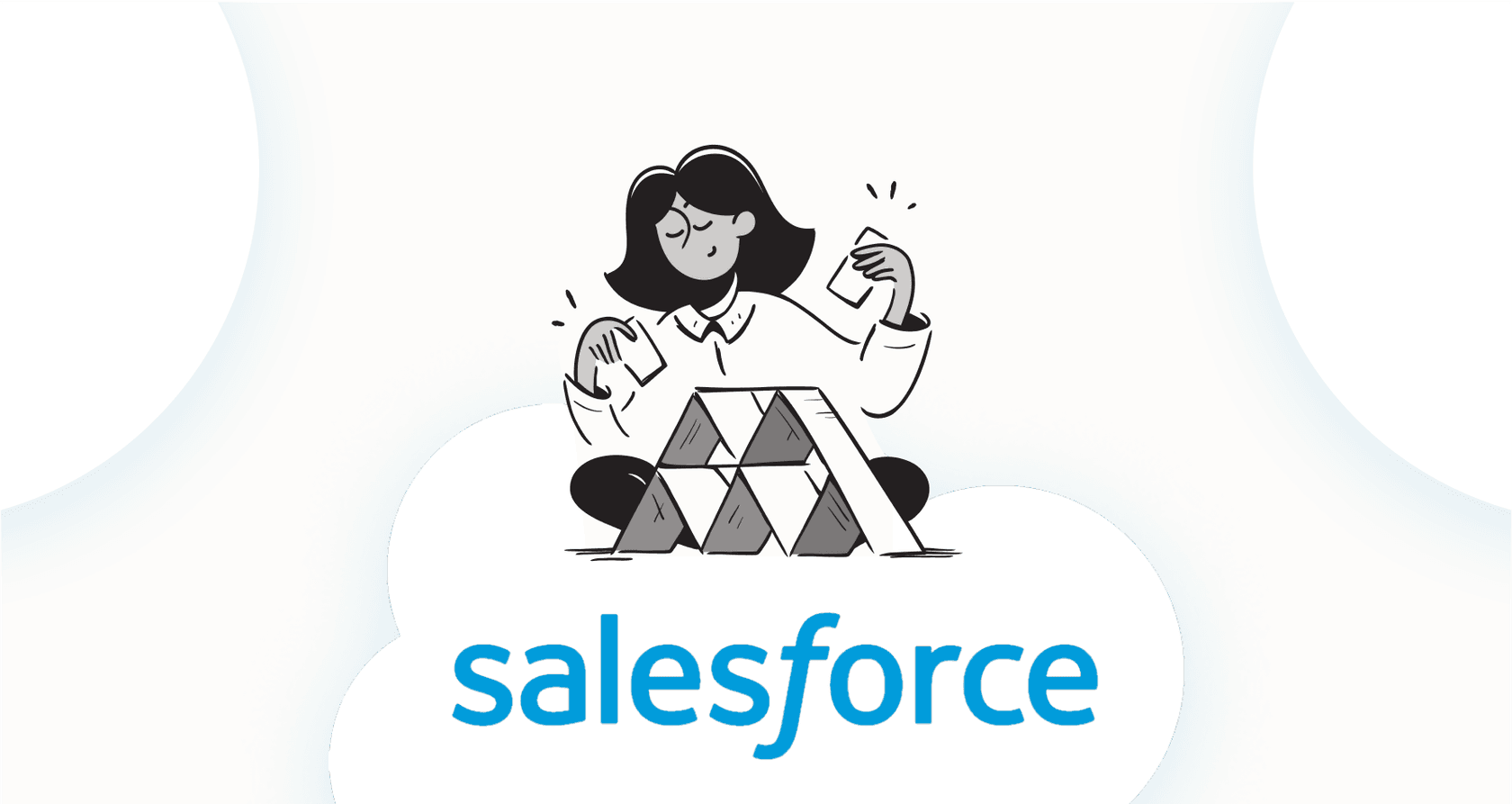
Let's be honest, you can't escape the buzz around Salesforce's AI plans. From their long-standing Einstein platform to the big launch of Agentforce, they’re investing billions and snapping up companies like Informatica. It’s no wonder that teams everywhere are asking the same question: Is Salesforce a leader in AI?
They’re certainly making a strong case. Salesforce isn’t just sprinkling a few AI features here and there; they're trying to build a world where AI, data, and their CRM all work as one giant, cohesive system. But the real question is, is their massive, enterprise-focused solution the right one for you?
This guide will give you a straight-up, balanced look at what Salesforce AI can do. We’ll get into its main strengths, what it looks like in practice, and some important limitations, especially for customer support teams. By the end, you’ll have a much clearer idea of whether Salesforce's all-in-one approach is your best bet, or if a more flexible option might be a better fit.
What is Salesforce AI?
Before we can decide if Salesforce is a leader, it helps to know what "Salesforce AI" actually means. It’s not a single product you can just go out and buy. It’s more of a layered platform that’s grown over the years, moving from making simple predictions to taking action on its own.
Einstein: The original predictive brain
Einstein is where Salesforce's AI journey began. Think of it as the foundational AI layer that’s all about predictive insights. It looks at the data you already have in your CRM and tries to tell you what might happen next. This can be anything from predicting which sales leads have the best chance of converting, forecasting your quarterly revenue, or automatically sorting incoming support tickets to get them to the right agent.
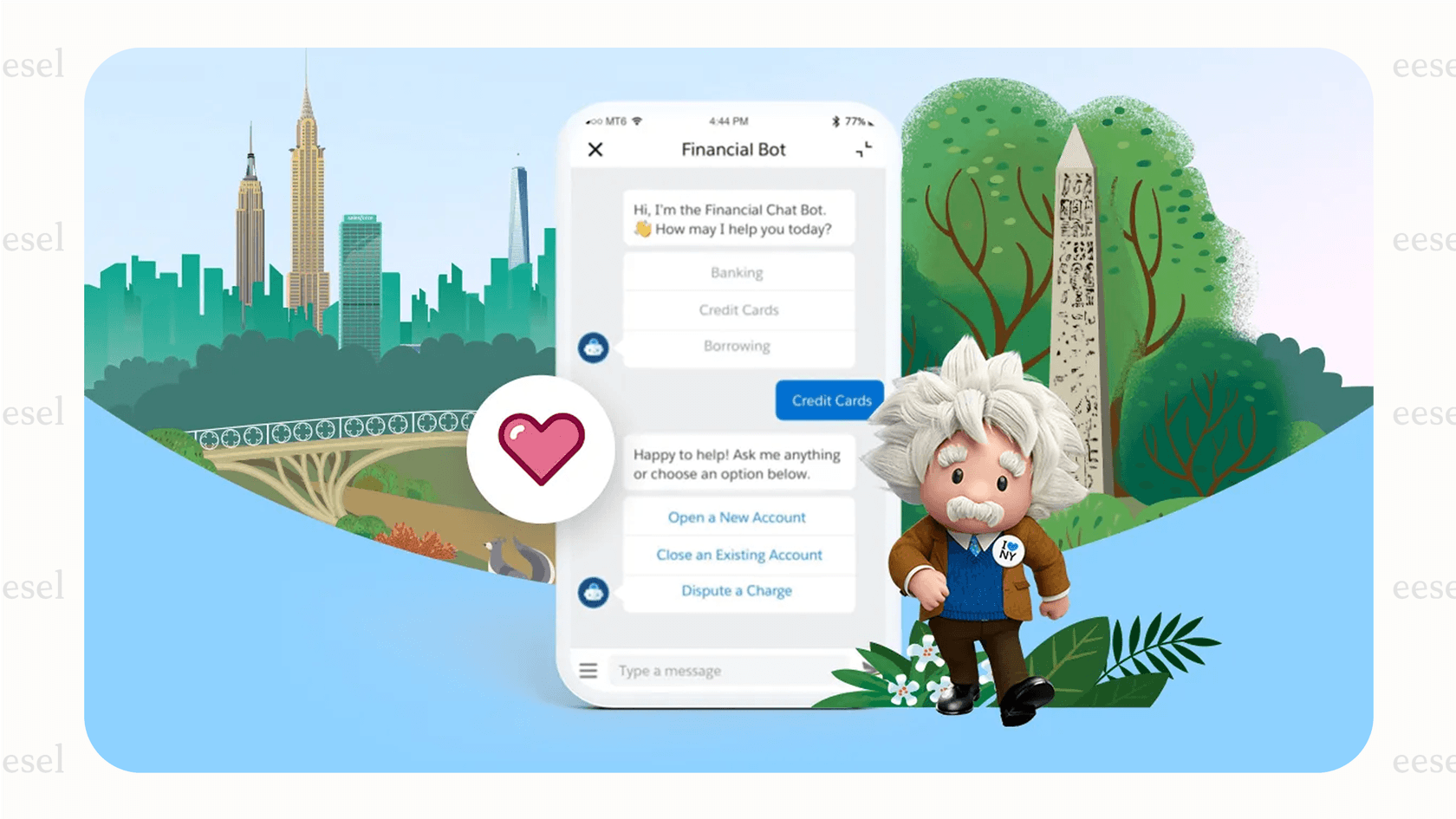
Data Cloud: The glue for your data
Anyone who's dipped a toe into AI knows that it's completely useless without good data. Data Cloud is Salesforce's attempt to solve that problem. It’s built to pull in customer data from all your different systems (your website, your app, your marketing tools) and create a single, unified profile for every customer. They call this "Customer 360." It uses a "zero-copy" approach, which is a fancy way of saying it can access data in other platforms like Snowflake or Amazon Redshift without having to slowly and painfully copy it all over.
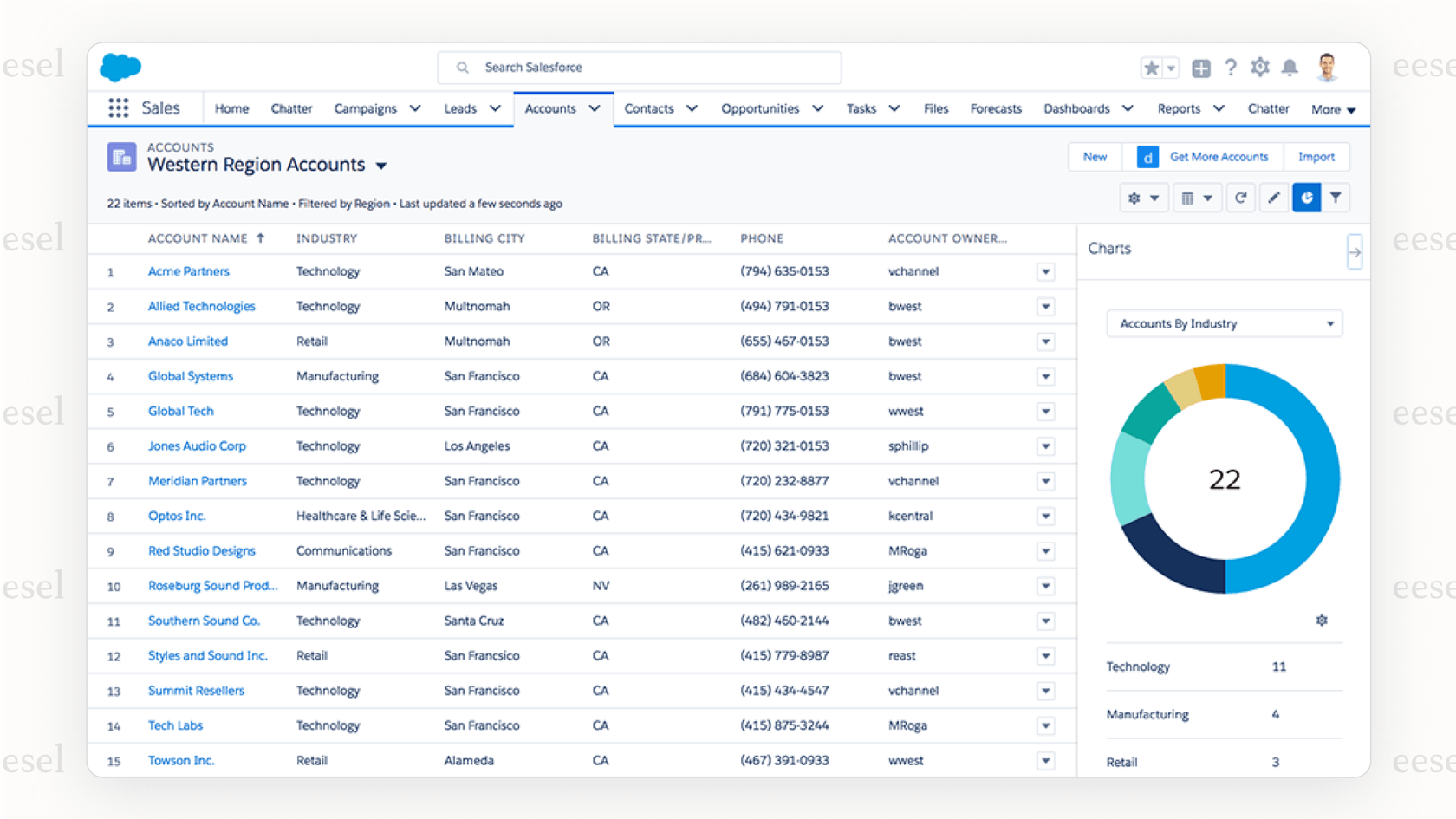
Agentforce: The part that takes action
So, Einstein predicts and Data Cloud unifies. Agentforce is where Salesforce’s vision for the future really takes shape. This is the part of the platform that’s designed to do things. It goes beyond just giving you a prediction or writing an email; it can actually perform tasks on its own. You could give an AI agent in Agentforce a goal like, "Figure out this customer's shipping problem," and it can work across different systems to resolve it without a human having to guide it every step of the way.
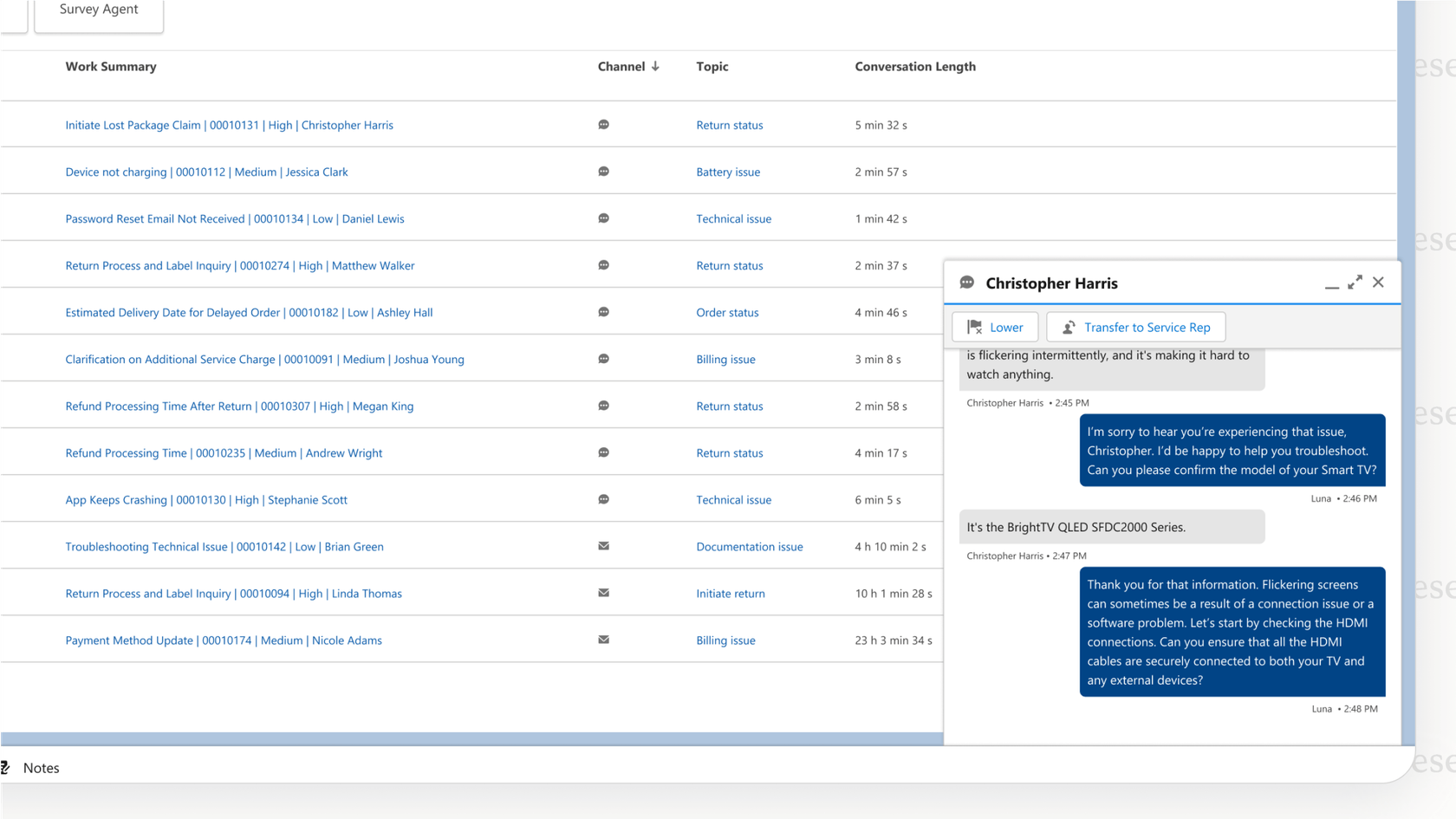
Salesforce's core strengths in AI
Salesforce isn't just making noise; their claim to being an AI leader is built on three key advantages that are genuinely hard for competitors to match.
The 'data moat': Grounding AI in your customer history
Salesforce’s biggest ace in the hole is the mountain of structured CRM data it’s been collecting for decades. Their AI doesn't just tap into a generic language model; it grounds every answer and action in the specific, real-time context of your customer data living in their Data Cloud. This means the AI isn't just making an educated guess, it's using a customer's actual purchase history, past support tickets, and interactions to inform its next move.
They recently acquired Informatica, a big name in data management, to double down on this. That move is all about making sure the data going into the AI is not just connected, but also clean, well-managed, and ready for an AI agent to use. It’s their way of tackling one of the biggest headaches in any enterprise AI project: messy, unreliable data.
The Einstein Trust Layer: Making AI less scary for big business
For most large companies, the biggest obstacle to adopting AI isn't the tech itself, it's the fear of security breaches and privacy nightmares. The Einstein Trust Layer is their answer to that fear. It works as a secure middleman between your company's private data and the various AI models, whether they're from Salesforce, OpenAI, or someone else.
Description: Create a flowchart that visually explains how the Einstein Trust Layer works. Start with "User Query" entering the system. A box labeled "Einstein Trust Layer" should be in the middle. Show arrows pointing from the user query to this box. From the Trust Layer box, have arrows pointing to smaller icons/boxes with labels like "Masks PII," "Adds Secure CRM Context," "Checks for Toxicity," and "Zero-Data Retention." Another arrow should point from the Trust Layer to an "External LLM" (like OpenAI), showing that the private data itself is not shared. Finally, an arrow returns from the LLM to the user with a "Secure & Relevant Answer."
Here’s what it does in plain English:
-
Securely adds context: When you ask the AI a question, it fetches relevant, secure data from your CRM to provide a useful answer, but the language model itself never gets to see or learn from that private data.
-
Masks sensitive info: It automatically finds and blocks out personally identifiable information (PII) like names and addresses before anything leaves your system.
-
Forgets your data: Salesforce has agreements with its AI partners ensuring they don't store any of your customer data.
-
Checks for bad stuff: It has built-in safety features to scan for toxic or harmful content in both the questions and the answers, and it keeps a detailed log of everything for compliance.
A massive ecosystem: AppExchange and big-ticket acquisitions
Salesforce is smart enough to know it can't build everything alone. Its AppExchange marketplace is a huge part of its strategy, letting thousands of other companies build and sell specialized AI apps that plug right into the main platform.
This is all supported by some huge acquisitions that have become the pillars of their AI world. They bought Slack to be the chat interface where people talk to the AI, Tableau to be the tool for analyzing all the AI-driven insights, and MuleSoft to be the integration engine that connects AI agents to just about any other system you can think of.
What does Salesforce AI actually do?
Okay, that’s a lot of theory. How does this tech actually help teams in their day-to-day work? Salesforce has woven AI into its main products to handle common tasks and, hopefully, make people’s jobs easier.
| Cloud | Use Case Example | How it Helps |
|---|---|---|
| Sales Cloud | Sales Emails: Automatically drafts personalized outreach emails based on customer history and opportunity details. | Saves reps hours of writing time and increases engagement. |
| Service Cloud | Case Summarization: Instantly generate a concise summary of a long customer support ticket and conversation history. | Reduces agent handle time and makes handoffs seamless. |
| Marketing Cloud | Predictive Audiences: Identify segments of customers who are most likely to engage with a campaign or make a purchase. | Improves campaign ROI and discovers new marketing opportunities. |
| Commerce Cloud | Personalized Product Recommendations: Suggest relevant products to shoppers based on their browsing behavior and purchase history. | Increases average order value and improves the customer experience. |
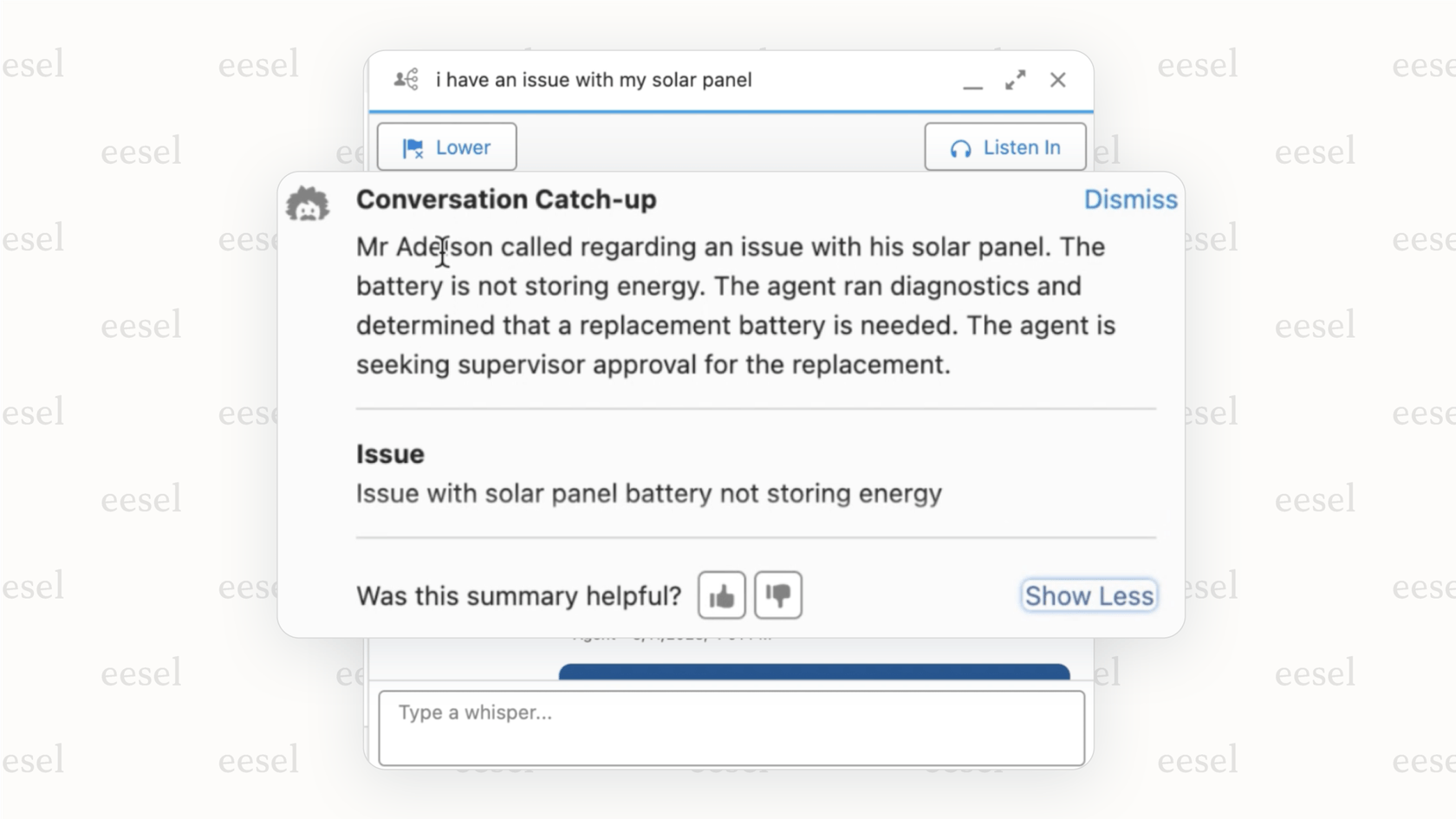
The limitations of Salesforce AI
For a giant company that has already bet the farm on Salesforce, the answer is a pretty clear "yes." The tight integration of AI, data, and CRM is incredibly valuable if you're already living completely inside their walled garden.
But for many other businesses, especially those that need to be nimble, flexible, and cost-conscious, there are some pretty big drawbacks that make Salesforce a tough choice.
The migration hurdle: What if you're not a Salesforce shop?
This is the biggest catch of all. Salesforce AI is designed, first and foremost, to work within its own ecosystem. If your support team is happy and effective using a best-in-class platform like Zendesk or Freshdesk, you can't just plug Agentforce in and call it a day. You’d be looking at a massive, costly, and painful project to move your entire helpdesk and CRM over to their platform.
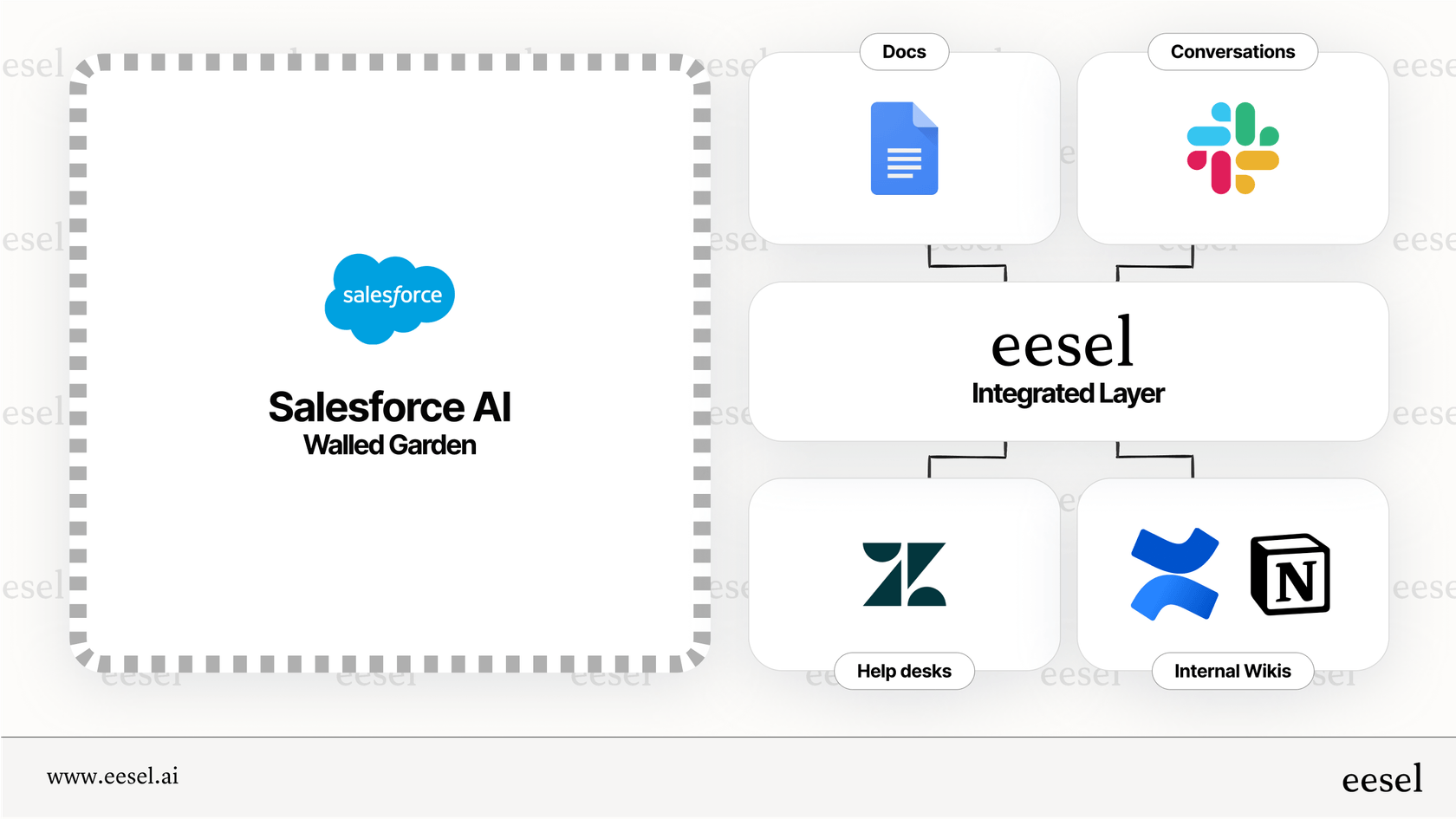
This is a totally different philosophy from a tool like eesel AI, which was built from day one to connect with the tools you already use. It plugs into your existing helpdesk and pulls knowledge from all your scattered sources, whether it's in Confluence or floating around in Slack, without making you switch your core systems.
The implementation timeline: Thinking in months, not minutes
The reality of getting Salesforce AI up and running is that it's a major undertaking. Setting up Data Cloud, cleaning and connecting all your data sources, and building custom AI agents is a project that often takes months and requires a team of developers and expensive consultants. It's powerful stuff, but it's not quick.
This is where a solution like eesel AI offers a completely different world. It’s designed to be self-serve. You can connect your helpdesk with a few clicks and have a working AI Copilot or Agent ready to test in minutes. Its simulation mode even lets you safely test the AI on thousands of your past tickets, so you can see exactly how it will perform before you ever let it talk to a real customer.
The pricing puzzle: Black-box costs and enterprise contracts
Good luck trying to find a simple price tag for Salesforce's AI features on their website. The process usually involves a long negotiation for a complex, multi-year enterprise contract with a confusing list of add-ons and "Enterprise Expansion Packs." This makes it almost impossible to predict your total cost, which can be a deal-breaker for businesses that need a clear budget.
This is a stark contrast to eesel AI's transparent and predictable pricing. The plans are based on the features and volume you need, and there are no hidden per-resolution fees that punish you for successfully automating more support. You can even start on a flexible month-to-month plan and cancel anytime, so you only pay for what you actually use.
The verdict on Salesforce AI: Leader for some, but not for all
So, back to the big question: Is Salesforce a leader in AI?
For huge enterprises that are already deeply woven into its ecosystem and have the budget and time for a massive implementation, it’s undeniably a major force. Their vision of a fully integrated CRM, AI, and data platform is compelling.
However, leadership isn't a one-size-fits-all title. For the many teams out there that need to move fast, keep the tools they love, and have control over their spending, the Salesforce model has some serious roadblocks. For these teams, true leadership looks less like a single, giant platform and more like powerful AI that’s easy to access, flexible, and simple to adopt.
An agile path to support automation with eesel AI
If you’re reading about the platform lock-in and long timelines and thinking, "that's not for us," there's another way to go.
eesel AI gives you enterprise-grade AI agents and copilots without the enterprise-level headaches and cost. Instead of making you move your whole operation, we plug into the tools you already know and trust.
You get an AI that learns from your past tickets, help articles, and internal documents to give instant, accurate answers that sound like they came from your team. You can set it up yourself in a few minutes, test it risk-free with powerful simulations, and pay a transparent price that actually makes sense.
Ready to see what a more flexible AI solution can do for you? Start your free trial with eesel AI or book a demo with our team today.
Frequently asked questions
Einstein provides predictive insights for tasks like routing tickets, Data Cloud unifies customer data from various sources, and Agentforce uses this foundation to automate actions and resolve issues. Together, they aim to create a cohesive AI-driven support experience within the Salesforce ecosystem.
Salesforce addresses data security through the Einstein Trust Layer. This layer masks sensitive information, ensures AI models don't store your private data, and adds context securely without exposing raw PII to the external models.
The biggest challenge is the extensive migration effort, as Salesforce AI is deeply integrated into its CRM ecosystem. Moving your existing helpdesk and customer data to Salesforce would be a massive, costly, and time-consuming project.
Deploying Salesforce AI is typically a major undertaking, often requiring months of effort. It involves setting up Data Cloud, cleaning data, and building custom AI agents, usually with the help of developers and consultants.
Salesforce AI pricing is generally not transparent online and often involves complex, negotiated enterprise contracts with various add-ons. This makes it challenging to predict the total cost, unlike solutions with clear, predictable pricing.
For smaller teams needing agile support automation without a full CRM overhaul, Salesforce AI might present significant roadblocks due to its deep integration and extensive implementation requirements. More flexible, plug-and-play AI solutions might be a better fit in such scenarios.
Share this post

Article by
Stevia Putri
Stevia Putri is a marketing generalist at eesel AI, where she helps turn powerful AI tools into stories that resonate. She’s driven by curiosity, clarity, and the human side of technology.



